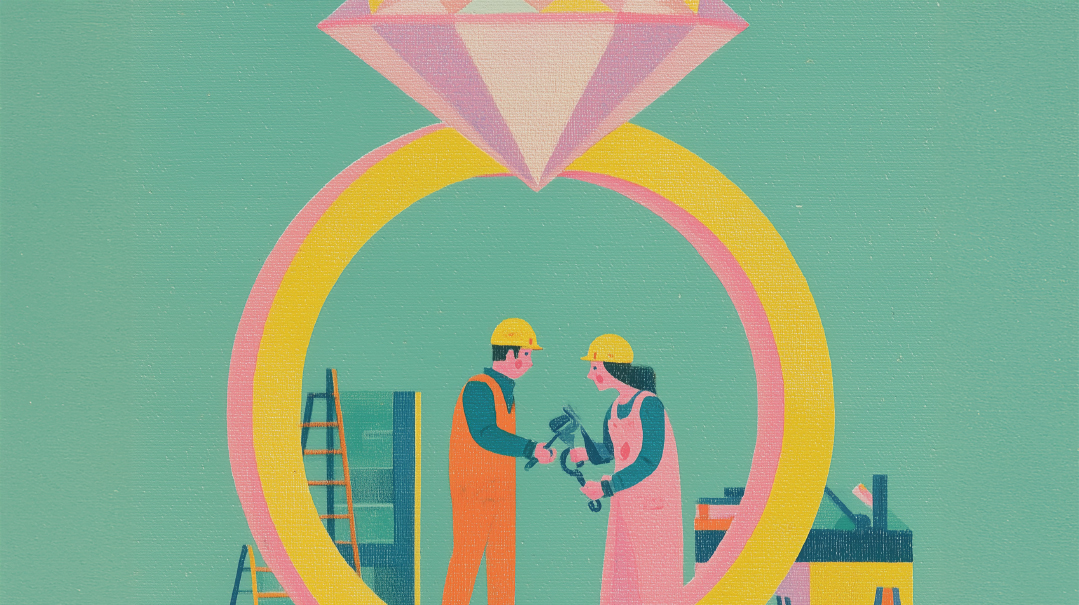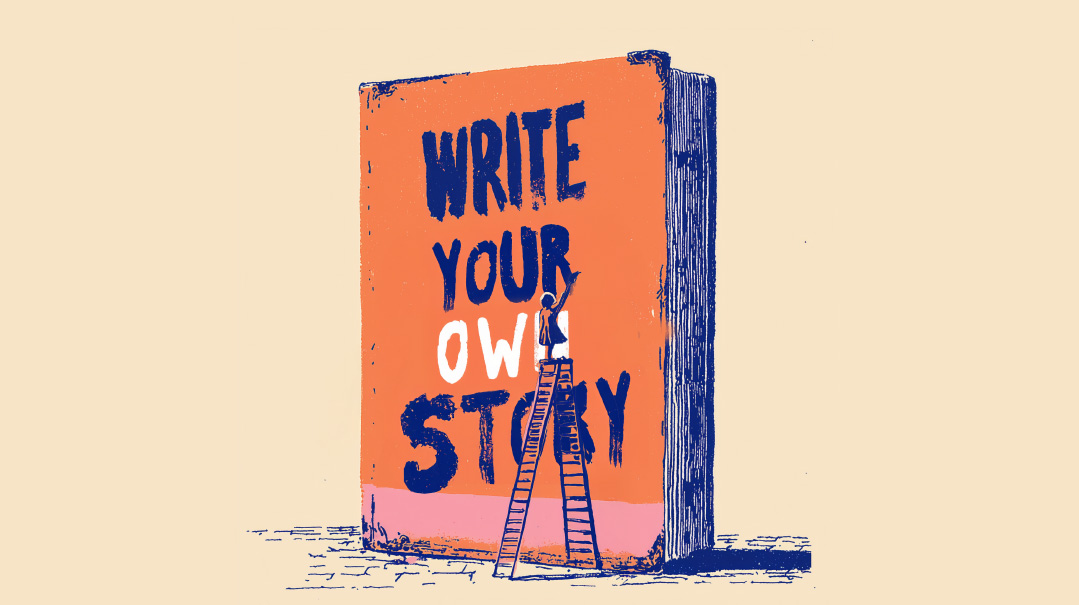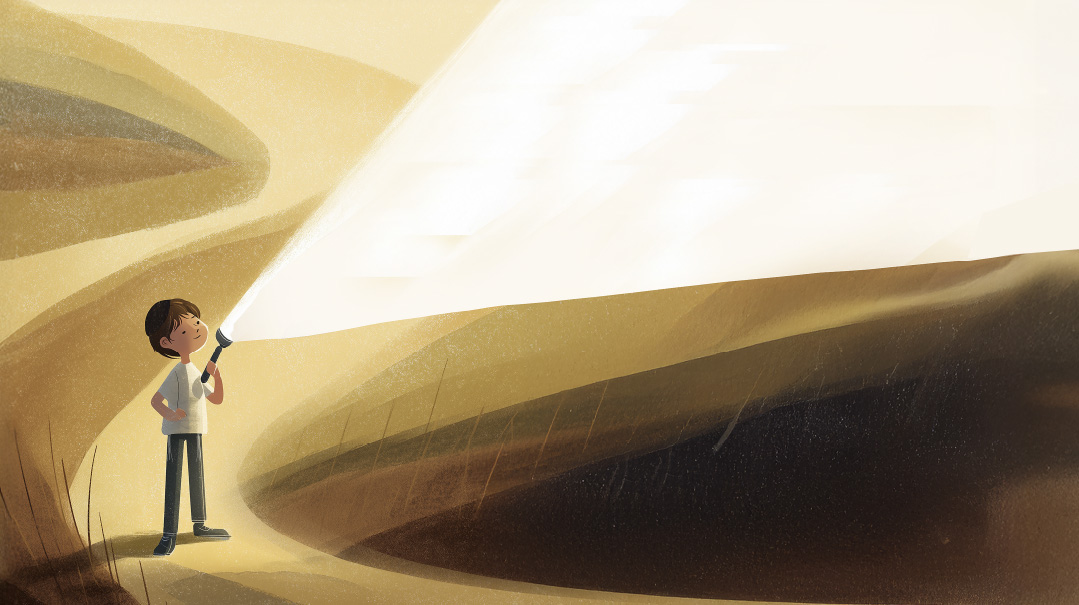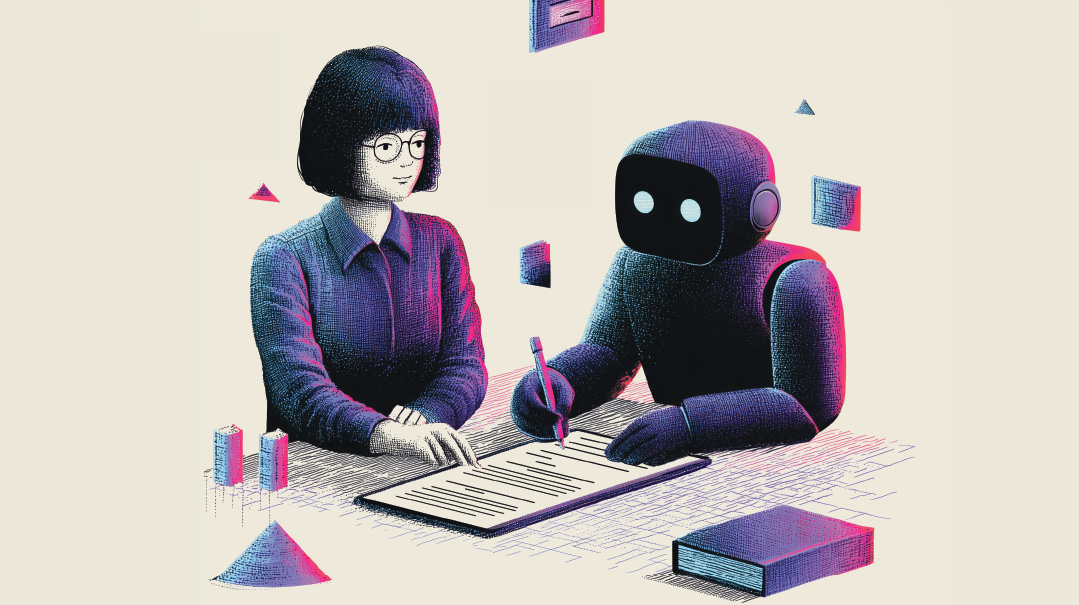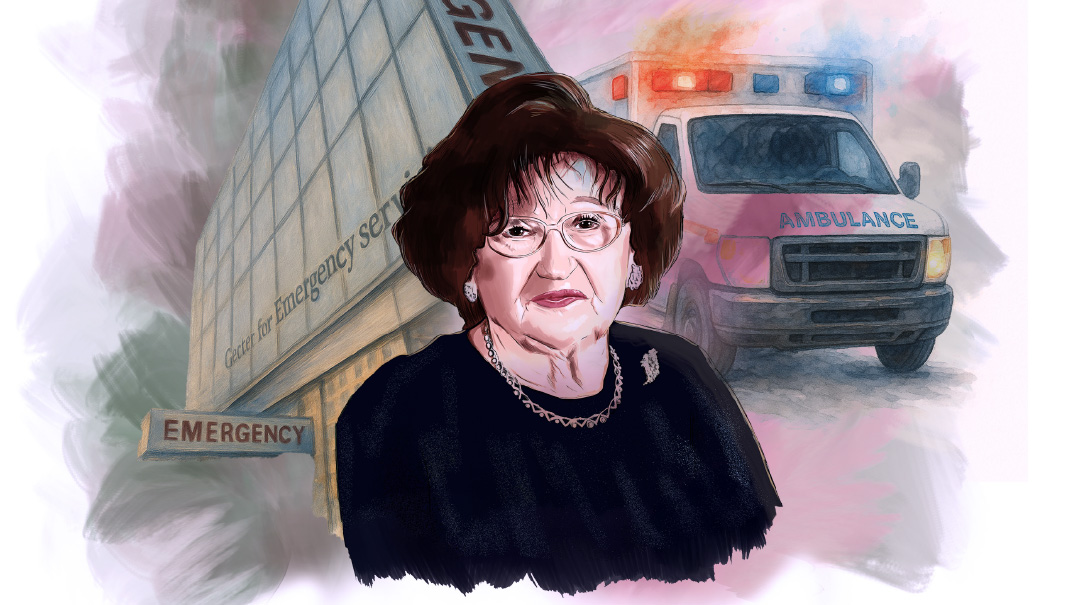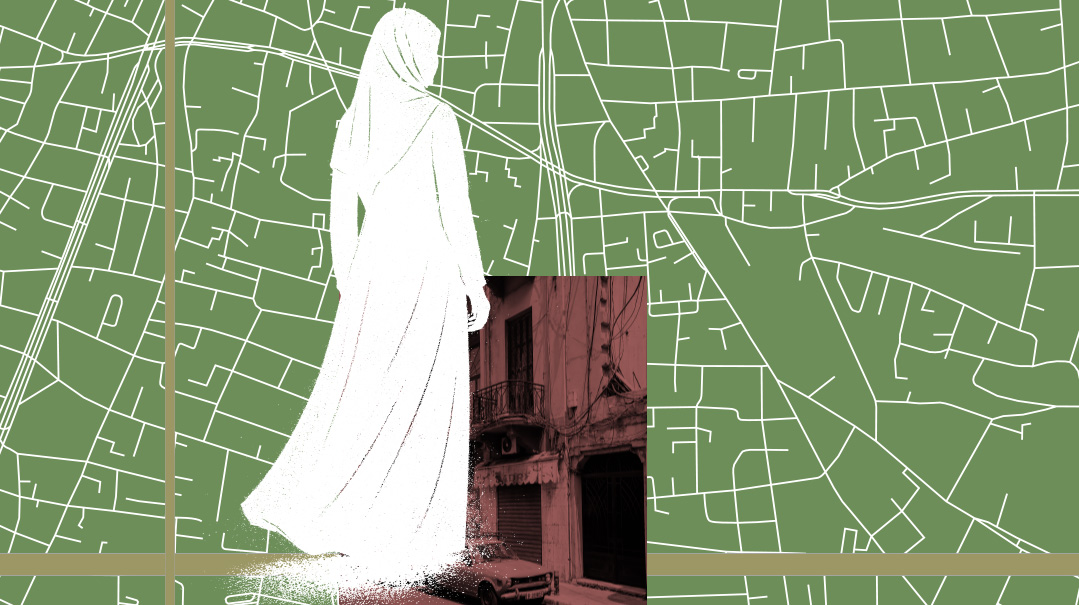Facing a New Day
| October 25, 2022When trauma comes with shame: three women share their stories
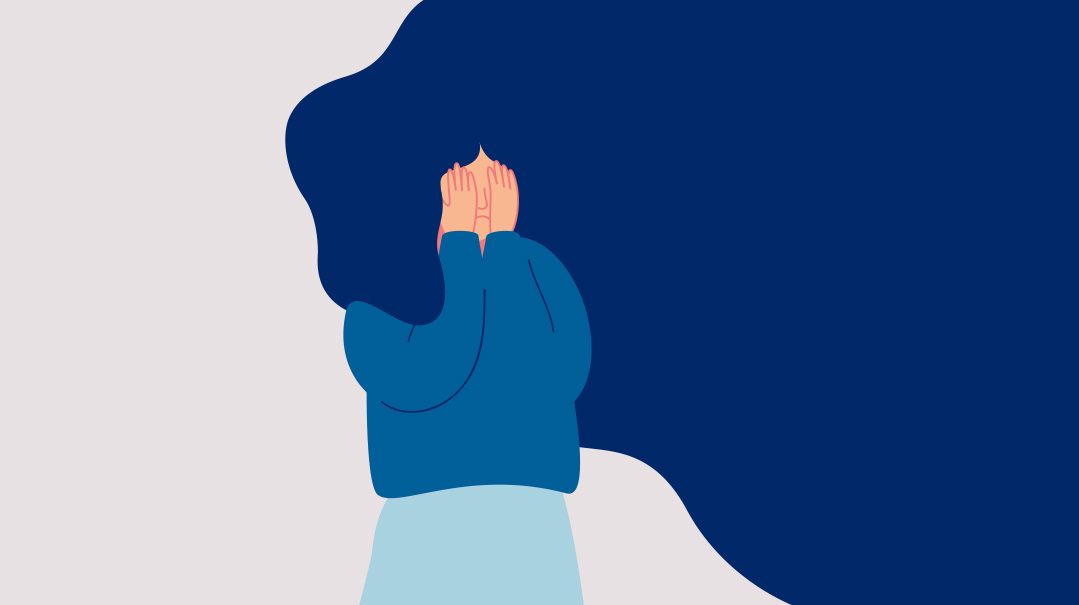
Shira Devorah’s Story
Tell me, what have I done? What crime did I perpetrate? My husband is in jail, not I! I was not the one convicted of money laundering — he was! Yet somehow, the painful circumstances are exacerbated by the humiliation of feeling judged.
I am Michael’s wife. By virtue of osmosis, I feel condemned.
Am I angry? On fire would be more accurate. When my husband was first arrested and subsequently convicted, I was consumed by a rage I’ve never felt before. How could Michael have done such a thing, risking our family’s well-being and security — for money? Not only that, but the financial windfall that he made from his get-rich scheme has long been depleted.
Six months ago, when the nightmare began and word began to trickle out, the stares and humiliation began. Some people avoided me, and others, even those I considered friends, stopped talking the second I came close. All conversation would grind to a halt.
My children struggled terribly. Many of their classmates started keeping a distance, as if having a father in trouble was a contagious disease. Thankfully, some of their closest friends remained loyal, as I experienced in my own circles.
Once the verdict was sealed and Michael was convicted, it got worse. We were official pariahs aside from our closest friends, who rallied around us. Even now, I shy away from most public gatherings so I don’t have to deal with the pain of socialization. It is excruciating to meet people in the store and around town. I feel their eyes boring through me, radiating disapproval and vilification.
As for my children — well, they know who their friends are. Sometimes my older ones skip social activities and sit home reading a book. Seeing their pain is the source of my greatest suffering. If only I could shoulder all of this for them and allow them to continue their innocent childhoods.
If becoming pariahs hasn’t been hard enough, we have other pressing issues that don’t let me breathe. The lawyer’s fees are outrageous, and our regular expenses are still present and demanding. So, instead of being our provider, Michael has dug us into an abyss.
I smile on the outside, but inside, I’m crying. It is so isolating to feel alone in a sea of pain so vast that no one can throw you a lifeline.
I would have sunk if not for some dear friends who, from the beginning, wholeheartedly offered me their support, helping me process and endure this unbearable pain.
When I need alone time, I settle myself on my piano bench and begin to play. As my fingers make music, my eyes rain tears. But the tears are healing.
From time to time, my rage still erupts, and I do my best to acknowledge and validate my feelings. But despite the intensity of my inner storm, I’ve learned that the flames of my fury will ebb; they will not consume me the way they did when this nightmare began. And once I arrive in a calmer place, I remind myself that this is a huge nisayon from Hashem, and I do my best to work through it.
Throughout my ordeal, HaKadosh Baruch Hu has become my best friend. My tefillos have never been so poignant, and I feel like He is listening intently, holding me close.
In due time, b’ezras Hashem, I know Michael will be freed. I continue to work on forgiveness, knowing that if we want to move forward, I will have to find it within myself to accept the upheaval he caused. Meanwhile, I navigate the dark waters with Hashem at my side, doing my best to keep the horizon in sight.
Shaindel’s Story
MY precocious, bright-eyed little boy has grown into a tall young man. I gaze at him and remember the eager kindergartner he once was, proudly celebrating his siddur party. A year later and a few inches taller, he stood on stage beaming, his brand-new Chumash lifted proudly in hand. He embraced the moment with open arms and an open heart.
That little boy has transformed into someone I hardly know. He looks familiar, but he’s a stranger. I recognize his shiny blue eyes, the shock of dark hair, the gentle smile. But the yarmulke and tzitzis are missing. His Chumash and siddur gather dust.
I was furious with Dani’s school for not knowing how to handle a child who was a little out of the box. His questions were shot down, and he was made to feel inferior throughout his school career. Reacting to the disapproval and lack of acceptance, he started getting into trouble, creating a downward slide leading to the rebellious teen he is today.
When I first realized that Dani was shedding shmiras hamitzvos, one at a time, the pain was overwhelming. How could this be? At that point, I thought he was disregarding only certain mitzvos. I didn’t yet know the full picture — that he had completely abandoned Yiddishkeit. Then I found out that he had accepted a ride with non-frum relatives on the Shabbos of his bar mitzvah. That Shabbos was supposed to be a time of simchah and nachas; instead, it became an ocean of anguish.
We sent him to special camps for teens at risk. I reached out to experts, and they all sang the same song, advocating unconditional love. Sometimes I succeeded, and sometimes… I didn’t. Sometimes I was too angry, too sad. I needed someone to take care of me and simply wasn’t up to mothering a wayward child.
Once, when Dani was at the beginning of eighth grade, I called a meeting of his rebbeim and menahel. They had seen him through middle school and were intimately familiar with his situation. When they were all gathered, I stood up. And I, shy Shaindel, took them on like a mama-lion fighting for her cub’s survival.
“Reach out to him!” I yelled. “Stop pouncing on him for every mild misdemeanor. Help him, love him, care about him! Do you want to lose him?”
Silence filled the room after my lengthy diatribe. Then, each rebbi and the menahel gave me a shkoyach. I left with tears in my eyes, wondering if I had engendered anything more than momentary inspiration. Would they really change their ways? And at this point, if they did, would it help?
When I engage in honest reflection, I know his school didn’t intentionally knock him down. They simply didn’t know how to handle the unique issues he presented. And they did try harder during that last year of middle school.
For high school, we tried more permissive, open-minded places. Dani repeatedly got kicked out, even from the more relaxed institutions, and wound up dropping out of high school.
Weeks, months, years have passed. Fierce anger has a way of letting up over time, just like fires can be extinguished. I can spend my time being angry, but how will that help? My focus is to show Dani love and unconditional acceptance — and to pour my heart out in tefillah.
To survive, I focus on hishtadlus: I speak with organizations that deal with these issues, and try to put their advice into practice. For my own well-being, I created therapeutic anchors to bolster me — I exercise daily and attend regular shiurim. Now that my children are older, I’ve increased my learning and spend more time on freelance writing. I feel more grounded when I immerse myself in these strengthening activities.
Friends and acquaintances see me in the neighborhood, the same Shaindel they’ve always known. When we meet, I hear the unspoken questions and judgments, firing mercilessly at my heart. What happened? What did you do to affect Dani this way? Surely you were remiss as parents. And my knees buckle under the weight of my suffering and humiliation.
I know I did everything I could for Dani. And I continue to keep the door to our home and our hearts wide open for him. But when well-meaning friends dole out “helpful advice,” it hurts. As if I haven’t tried every possible resource and avenue. They just don’t understand. And I’m glad they don’t. But I feel like I’m living on a desert island.
One rav I’m close with always asks about Dani. His caring strengthens me. And before our conversation ends, he reminds me to daven. Sometimes I wonder why I should. If yiras Shamayim is up to the individual, then what am I asking Hashem to do?
But the answer hurtles down like a meteor: Hashem can bring caring people into Dani’s life who may reignite the dormant spark. Or Hashem can set a plan in motion that will help Dani rethink his choices. So I continue to daven and hope that soon, a new day will dawn.
Malkie’s Story
Suicide. My precious daughter took her life at 16 years old.
A child on the cusp of adulthood, she succumbed to the pain of rejection and not fitting into the social milieu. I, my husband, and our entire family were left reeling, devastated by our loss and the new reality of our lives, never imagining this trajectory on our life’s journey.
And if the pain isn’t deep enough, the agony not adequately vast, an element of shame creeps in. Shame of judgment by extended family and community. Shame when facing myself as I search my soul and wonder what I should have done differently. And shame before Hashem as I cry out, fearful that I’ve fallen short in my life mission. I had been handed a treasure for safekeeping, but I didn’t guard it with the adequate care it deserved.
When Leah first died, I wanted to be with her. I wanted to join her, my arms enfolding her, and stay with her forever. It took too much energy just to get up every day and live.
Just a few weeks after Leah’s passing, a dear friend of mine had to be in the hospital with her Down syndrome baby. The baby needed open-heart surgery, and her condition was serious and frightening. Due to Covid restrictions, visitors were banned, except for one regular person. Hashem tapped me on the shoulder, and I became that regular person.
Almost every Shabbos for close to two months, I walked 40 minutes in the blistering heat to sit with my friend and her baby in the hospital. With each step, with each minute of visitation, I was lifted from my pain and sadness. I had a reason to live, I had something to do that could help someone else, and this galvanized me. It was truly a case of the doer receiving so much more than the recipient. Naturally, I dedicated the zechus to Leah a”h.
Months later, Hashem handed me one more chesed that was a perfect fit. Someone in the community had a daughter who was threatening suicide. One Shabbos, she trekked to my home, and we sat together. She talked, she cried, and I listened. With Hashem’s help, this family was able to get their daughter the help she needed. I was so grateful to have this mitzvah, this zechus, for my Leah.
As the months passed, I became one person on the outside and one person on the inside. On the outside, I appear to have “moved on.” After all, I “have so much to live for.” So, yes, I’m caring for my family, I’m working, I’m productive. I even smile. Laugh. Feel grateful for the gifts I have. But inside, the wells of pain are excruciating. And I await Mashiach and techiyas hameisim more deeply than ever before.
When someone has a heart attack or any other serious illness, friends and community rally to help. But when mental illness creeps into the picture, people don’t know how to react, and inevitably wind up causing pain. They either make abrasive or insensitive comments, or they say nothing, which is also hurtful.
But sometimes people get it right. One person surprised me, someone I wasn’t especially close with. She wrote down the day of Leah’s death, and recently told me she has been saying Tehillim for her since her petirah. That brought tears to my eyes. Others have sent me emails saying, “I’m thinking about you.” These are touching ways for people to reach out and say, “I care.”
When Leah died, I grappled with a host of intertwined emotions — pain, shame, and anger were knotted tightly together. I wasn’t angry with Leah. She was young, and she only saw one way to escape her troubles. If she had understood the lifelong pain her death would cause those who love her, I believe she may not have opted to take her life. But to her, suicide seemed like her only recourse.
So, who was I angry with? Myself and my husband. For not giving her what she needed to flourish. We were her parents! How could we have allowed her life to spiral to a point of no return? And I yelled at Hashem, too. How — why — did He permit Leah to succeed in taking her life? Hashem, You could have saved her life! Why didn’t You? Why? Why? Why?
I still get angry sometimes, but now that several years have passed, the waves usually ebb relatively quickly. When I feel the anger simmering, I turn to Hashem and ask for help. Help with acceptance. Help to forgive myself for being human — for trying and sometimes failing, but for trying, nonetheless.
And I ask Hashem to hold Leah tightly in His arms and to give her the love and security that she sought on this earth, but which eluded her in her brief lifetime.
A Rabbi’s Perspective
by Rabbi Ilan Feldman
How is it possible to surmount pain, shame, and anger in the face of tragedy?
When a person is struck by a violent storm, it’s not the time to address her anger. Al teratzeh es chavercha bish’as ka’aso. It’s a normal human reaction to feel anger when struck by unimaginable pain. To scream, “This is not the way it should be! I can’t live with this!”
Give her the time and space to feel her raging emotions and allow them to run their course. Permit her to be angry at the source of her anger, pain, and shame. In time, the unbridled waves will ease their force.
At some point, when she’s exhausted from the anger and wants to know how to live in her new reality, when she’s ready to ask questions and wonder about her challenging situation, the time will come for guidance and exploration.
As her rabbi, I would wait until she brings it up, indicating a readiness to examine the anger. It’s impossible to know the right time for any person in turmoil because each person has her own timeline. She is taking an individual journey toward transition and transformation, and must be willing to seek guidance for it to have an impact.
From a Torah perspective, everything that happens in This World has potential for growth, including difficult circumstances. We don’t welcome darkness and pain. No one wants a child off the derech, a husband in jail, or a child who commits suicide. But amid the pain, and even because of the pain, a light can shine through the darkness, reshaping suffering into fertile soil where positive action can take root.
When a suffering person is ready to let go of her anger, she can ask herself: How can I move the needle forward in my life? What positivity and productivity can I create because of this tragedy?
During the Holocaust, rachmana litzlan, people watched their loved ones go to their deaths, while they were sentenced to life. How could they go on after losing their entire world? Yet, they mustered indomitable courage and resilience, and chose life. They yearned to build families, to live, to love, to accomplish. They endured unimaginable suffering, miraculously emerging with profound awareness that every moment of life pulses with potential.
When afflicted by trauma, it’s impossible to immediately absorb the impact of what happened. This is the reason Hashem gives a period of aninus after the death of a loved one. “My child,” He says, “you are not a malach. I understand you can’t do mitzvos now.” But once the initial shock has passed, it’s time to live, to rejoin the world of metzuveh v’oseh once again.
At every moment of life, a person retains her power to choose or give up. Only she can decide to take responsibility and meet the challenge head-on. Yes, something terrible happened, a situation she never dreamed would engulf her life. But within the package, a valuable commodity is waiting, hoping to be unveiled. When she’s ready, she will lift her head and ask, “Where do I go from here?”
And the unequivocal answer is: “Choose life.”
Rabbi Ilan Feldman is the mara d’asra of Atlanta, Georgia and rav of Congregation Beth Jacob.
When The Going Gets Tough
It’s hard to know how to respond when people near you are grappling with a painful nisayon. Here’s some advice from those on the other side:
Don’t infringe on their privacy. When you chance upon them in a store or in another public venue, realize that they probably don’t want to discuss their deepest pain while they’re choosing bananas and peaches.
Don’t say, “I know how you feel. I also…” You have no idea how someone else feels. You and she are different and have individual circumstances and personalities. In addition, it’s insensitive to impose your burdens on another who is mired in her own suffering. This applies even if you endured the exact same situation! Even if your child also went off the derech, for example, you still don’t know what the other person is going through.
Don’t offer unsolicited advice. You can share that you endured a certain challenge and found some helpful tools that supported you through the ordeal. Then, offer her the choice: “Would you like to hear what helped me?”
Do call or send a kind note to acknowledge your friend’s pain. Just a simple “I’m thinking about you” or “I’m here if you want to talk” can go a long way.
Do keep up the connection. Often, a person is not up to reaching out when she’s living on her secluded island of pain. Don’t give up. Let her know you’re there. Invite her for a walk, for coffee, or keep calling every so often to check in.
Do understand that one day, she may want to connect, and on another day, she won’t. Her silent storm may be going through different stages at any moment of the day and may require different techniques at alternate times. Close family members and friends can usually reach out more comfortably because there’s safety in the relationship. Although they should still realize that their relative/friend is in a fragile state, the wellspring of love within their caring gestures will probably be more readily welcomed, accepted, and appreciated.
A Therapist’s View
by Mrs. Esther Gendelman
What I try to create for my clients, especially those going through a painful and humiliating nisayon, is a safe place to explore what they’re feeling.
Following any type of severely painful circumstance, grief surfaces. But there are also a host of other emotions: shame, guilt, anxiety, fear of the impact on their lives, fear of judgment, their anger toward any perpetrator, loss of identity, loss of themselves, loss of will to live, and more.
My goal is to be present for my client, holding a space with compassion and acceptance, so she can process her complex and multilayered emotions, thoughts, and sensations. In this safe space, the intensity of her emotions can gradually quiet and then be worked with. Deep validation can soothe unspeakable wounds.
When my client has reached a level of acceptance of the painful reality she cannot change, it’s time to collaborate on the next steps. Any treatment plan needs willingness and openness from the client to touch her pain and assess her view of herself, of others, and of how she wants her life to look moving forward.
We explore questions. For instance, when she replays the thought that, “she should have known or done something differently,” where does this take her? Is she holding on to her anger because it gives her a certain strength instead of a listless helplessness? Is her shame helping her move forward, or is it keeping her stuck?
A very wise rav and mentor told me that the most important therapeutic task I can offer my clients is to shine a light on their path out of shame to a healthier state.
When processing pain, there’s room for healthy guilt and remorse. Shame, however, is a state of total despair, leading us nowhere. It’s a feeling that we are inherently bad, worthless, and defective.
Healthy remorse, on the other hand, helps us to hold our esteem and innate worthiness as we simultaneously confront our human errors. As human beings, we all make mistakes and wish in hindsight we could have done better. And as ma’aminim, we grasp on to our neshamah’s message — that Hashem has a plan regardless of our mistakes. All the learning we do as we face our life’s struggles remains important in defining our tafkid.
When a client is in the thick of a heart-wrenching nisayon, she may be hypersensitive to any negativity directed toward her. Naturally, anger will follow when others say or do the wrong thing. Through perspective work, a client can be lifted out of her anger by learning to view the remark or action through a different prism. By realizing that some people will never understand what she’s going through, through no fault of their own, she can learn to deflect the pain.
A strong support system is vital to healing, so we focus on identifying the right type of people to reach out to: those with the capacity to offer compassionate listening, those who are able to put their own fears away and be there fully for their family member or friend, and those who are healthy enough to support the griever in her journey.
When my clients feel ready, I help them to create emotional boundaries. I start by teaching them about “emotional darts.” For instance, someone throws a “dart” by saying a hurtful comment. Our first reaction might be a deep ouch. After that, we sit with ourselves and validate with curiosity and compassion whatever feelings we experienced. Then, when the intensity lessens, we can observe ourselves and ask ourselves with honesty if any aspect of the dart feels accurate.
At this point, we can view the “dart” as a “ball.” Despite the way the “ball” was thrown, can we utilize our personal integrity to notice and acknowledge it? If the pitch was a bad ball, can we consider the source? Can we accept that the other person may be the responsible party? This is tough emotional work and yet incredibly transforming.
As a therapist, I cherish the opportunity of joining my clients on their painful journeys of grief and transformation. Their experiences transform both of us. May Hashem help heal all pain as He is the ultimate Rofei L’shvurei Lev.
Mrs. Esther Gendelman MS, LPC, ACS is a licensed psychotherapist and approved clinical supervisor who specializes in working with relationships. A veteran educator, speaker, and writer, she has a passion for helping people grow and maximize their potential.
(Originally featured in Family First, Issue 815)
Oops! We could not locate your form.

